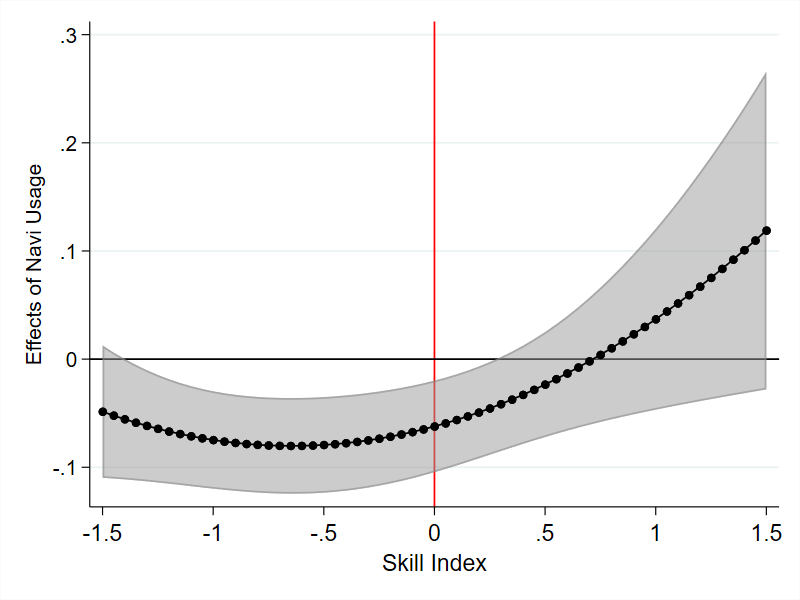Impacts of Artificial Intelligence on Labor


- 4.2 Fairness and non-discrimination
- 4.3 Diversity and inclusion
- 4.6 Transparency and explainability
Daiji Kawaguchi
Graduate School of Public Policy
Professor
The impact of Artificial Intelligence on labor is studied from the viewpoints of employment, productivity, wages, hours worked, and job satisfaction. We use high resolution data on the adoption of AI/labor outcomes and empirical microeconomic methods. In particular, we pay close attention to the impacts on inequality.
Note: This project is one of the collaborative activities of the Next Generation Artificial Intelligence Research Center of the University of Tokyo.
Note: This project is one of the collaborative activities of the Next Generation Artificial Intelligence Research Center of the University of Tokyo.
Research collaborators
Hitoshi Shigeoka, Professor, Graduate School of Public Policy
Yasutora Watanabe, Professor, Graduate School of Public Policy
Kyogo Kanazawa, Researcher, ESRI of Cabinet Office
Yasutora Watanabe, Professor, Graduate School of Public Policy
Kyogo Kanazawa, Researcher, ESRI of Cabinet Office
Related publications
Kyogo Kanazawa, Daiji Kawaguchi, Hitoshi Shigeoka & Yasutora Watanabe (2022) AI, Skill, and Productivity: The Case of Taxi Drivers, NBER Working Paper 30612, DOI 10.3386/w30612
SDGs
Contact
- Daiji Kawaguchi
- Email: kawaguchi[at]e.u-tokyo.ac.jp
※[at]=@







